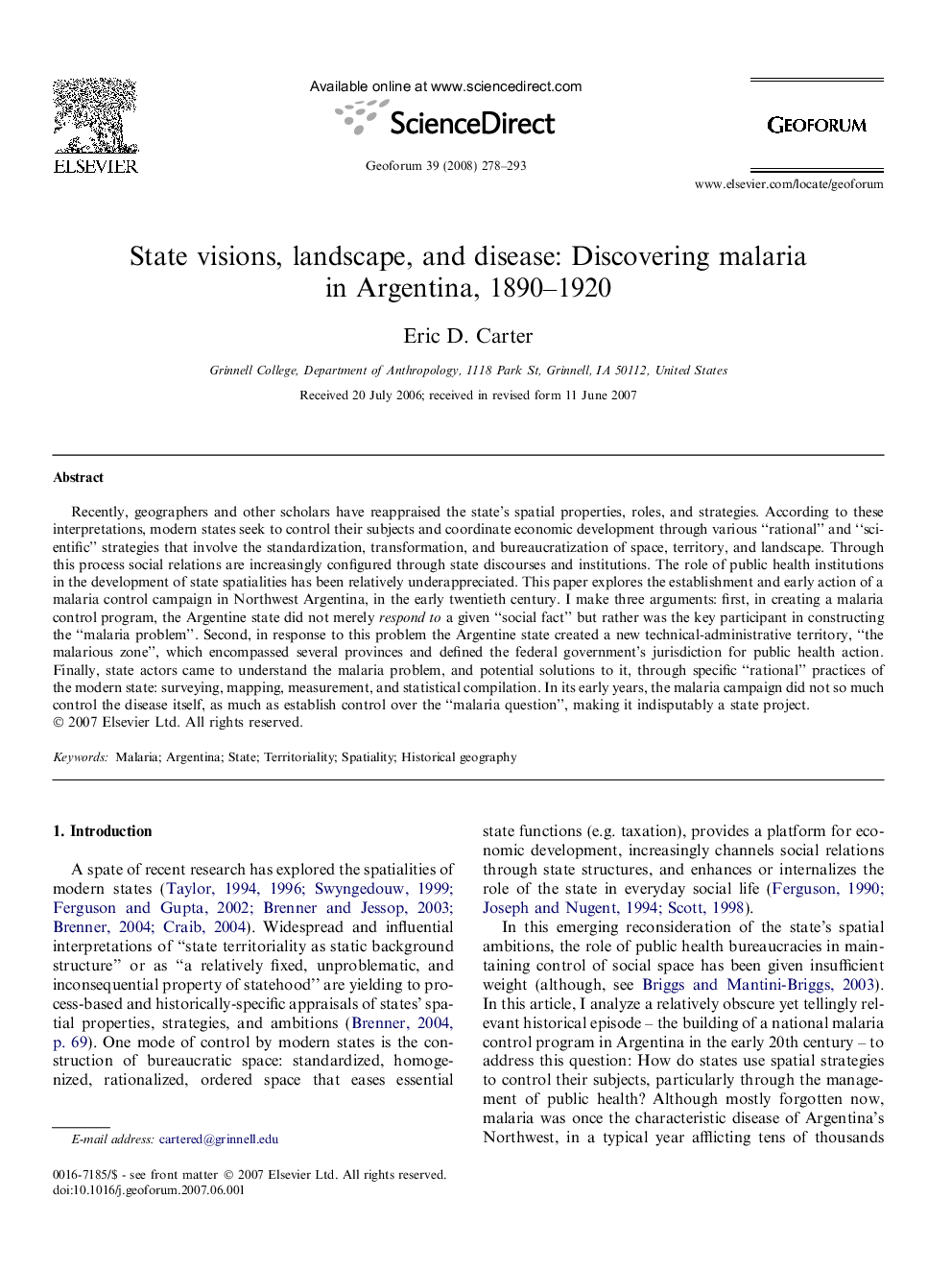| Article ID | Journal | Published Year | Pages | File Type |
|---|---|---|---|---|
| 5074978 | Geoforum | 2008 | 16 Pages |
Recently, geographers and other scholars have reappraised the state's spatial properties, roles, and strategies. According to these interpretations, modern states seek to control their subjects and coordinate economic development through various “rational” and “scientific” strategies that involve the standardization, transformation, and bureaucratization of space, territory, and landscape. Through this process social relations are increasingly configured through state discourses and institutions. The role of public health institutions in the development of state spatialities has been relatively underappreciated. This paper explores the establishment and early action of a malaria control campaign in Northwest Argentina, in the early twentieth century. I make three arguments: first, in creating a malaria control program, the Argentine state did not merely respond to a given “social fact” but rather was the key participant in constructing the “malaria problem”. Second, in response to this problem the Argentine state created a new technical-administrative territory, “the malarious zone”, which encompassed several provinces and defined the federal government's jurisdiction for public health action. Finally, state actors came to understand the malaria problem, and potential solutions to it, through specific “rational” practices of the modern state: surveying, mapping, measurement, and statistical compilation. In its early years, the malaria campaign did not so much control the disease itself, as much as establish control over the “malaria question”, making it indisputably a state project.
